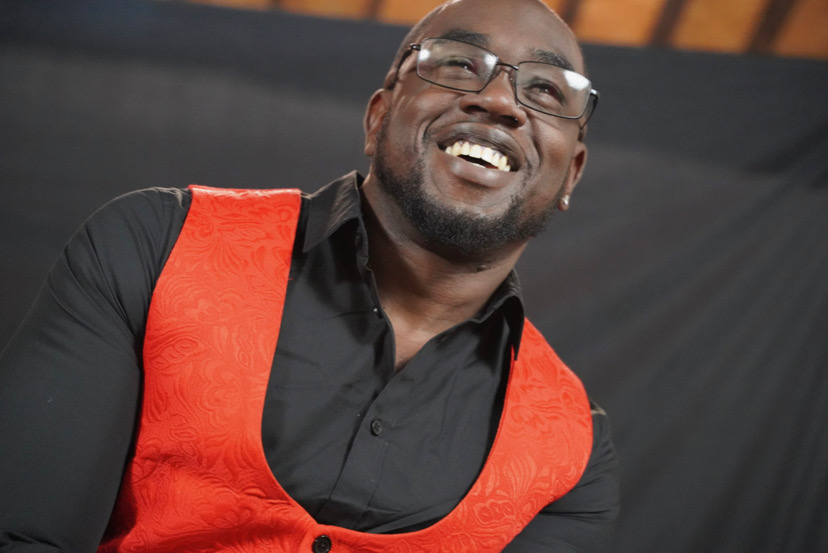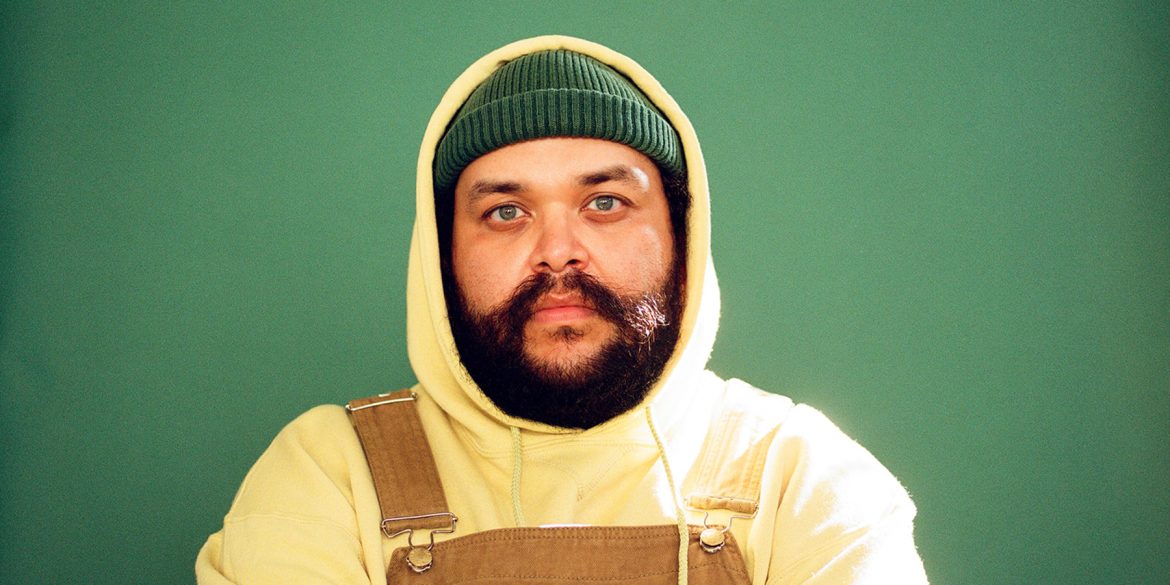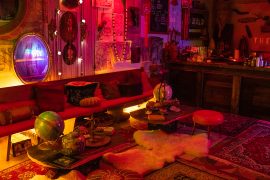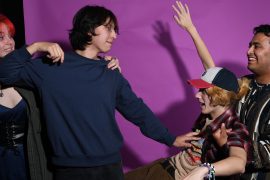Part four in a four-part series.
Music is a language understood universally; it offers an opportunity to connect with and understand a changing world, but the Covid-19 pandemic has shifted the way that artists, as well as listeners, engage with and think about music.
With venues closed and tours canceled, Indianapolis Hip Hop artist Oreo Jones took the opportunity to slow down and re-center his creative energy. “I think the silver lining to such a horrible 2020 was me being able to focus on myself as an artist. Before the pandemic, I found myself moving at 150 mph trying to keep up with the world around me,” says Jones. “I was able to focus on my craft and make some of the best music I’ve ever been a part of, ultimately landing my first record deal.”
Like many other artists, Jones wasn’t alone in the effort to survive a struggling industry. Jones felt particularly grateful for the virtual music streaming movement, Band Camp Fridays, an artist-centric online streaming platform designed to help artists and musicians earn more for their work. On Band Camp Fridays, revenue share fees are waved, allowing an average of 93% of listener money to reach the artists directly. “I feel like I can speak for a lot of musicians who looked forward to Band Camp Friday’s when 100% of the fees were waived,” said Jones. “It’s dope to feel the support from organizations around Indianapolis that value arts and music.”
Other organizations were already positioned to offer virtual support to artists, like Musical Family Tree (MFT), a non-profit centered around curation, education, and the legacy of local music. MFT offers an education series for musicians that covers topics including community issues, workforce training, and music and entertainment law. MFT, with Big Car Arts Collective, also hosts a biweekly radio show, Local Music Hour, on WQRT on Thursdays at 7 am and Saturdays at 11 am, where they discuss the music scene with local artists. “A lot of our programming is built pre-covid, around touring and live music,” says MFT board chair Jim Rawlinson. “We’ve had to pivot a lot since then, but I think some of the work of music strategy and some of the relationships that have been built along the way positioned us to kind of operate differently to be better positioned in 2020 as things started to change.”
Live Music: Gone But Not Forgotten
Still, artists and venues struggle to survive in a near exclusively virtual space. Organizations in support of arts and music have shifted the way they support artists and venues in particular. Organizations like MFT, have created new goals— to offer fundraising and grants to Indianapolis venues, in the hopes of reopening for live shows. Alongside the Indiana Independent Venue Alliance (IIVA), MFT, as a non-profit financial sponsor, raised nearly half a million dollars for Indianapolis venues. “Between the IIVA fundraising and CARE funds we ended up putting out almost half a million dollars directly to venues in need,” said Rawlinson.
Artists like DJ Boogie Bang also understand the need for live music in the community. Even though he had to take on more hours in his day job, Boogie Bang got creative. In the spring of 2020, DJ Boogie Bang, along with Taleb Fazle and Tony Styxx created #Unplugged, a live music event at Cleo’s Bodega on the near northwest side of Indianapolis.“ Tony Styxx being the host and me being the DJ came together and just created the vibes where people could come and enjoy each other in a safe space,” said Boogie Bang.
Rethinking Music Consumption
The way the artists and organizations are handling the pandemic is also shaping the way music is consumed by listeners and fans. Not just how fans find music, but how and where they consume it.
While the virtual space has played a crucial part in the resilience of the music community, Rawlinson points out that it still poses a challenge for local artists.“I think we’re in a weird space now where musicians can’t monetize things besides merchandise and live performances so that really hurts them under current conditions,” said Rawlinson. “Nobody wants to pay any more for musical downloads, the general public doesn’t do that. You’re not getting paid from Spotify so being able to monetize the recorded media is not something that’s happening right now because it’s not a priority for consumers whether we like it or not.”
The combination of coordinated fundraising and grants, as well as the existence of a virtual space for entertainment has kept music afloat, but coverage of music in journalism and the media is important to revitalizing a struggling industry in the future, according to Rawlinson. “I think there needs to be a space for music journalism and for people to talk about bands and artists that aren’t in the mainstream. I think sometimes you can find the real hidden gems are in that.”
Perhaps music fans will emerge with a renewed passion and understanding for the artists and venues that create the beats and vibes that invigorate us, and the communities and organizations that have supported the music industry along the way. For DJ Boogie Bang surviving and thriving during the pandemic is all about the connection live music provides, “That people interaction and being with people, actually working with the people is what we need to feel our souls.”





